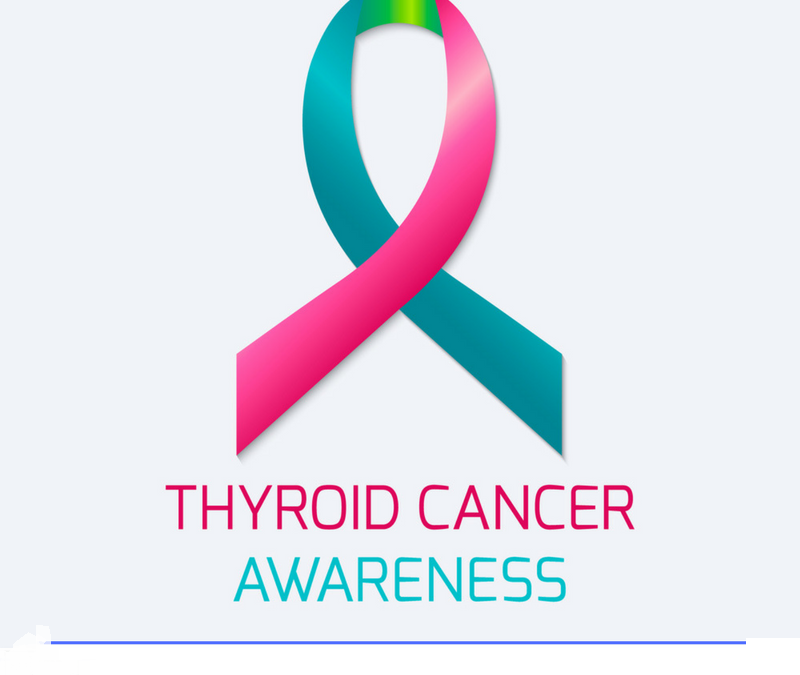Shining a Light on Thyroid Cancer

Understanding, Awareness, and Early Detection
Thyroid cancer, though relatively uncommon compared to other forms of cancer, can have a significant impact on individuals of all ages. With early detection and timely treatment, however, favorable outcomes are possible. In this blog, we’ll delve into the importance of raising awareness about thyroid cancer, understanding its signs and symptoms, and promoting regular check-ups for thyroid health to support those impacted by this disease.
The thyroid, a small butterfly-shaped gland located in the front of the neck, plays a crucial role in regulating metabolism, energy levels, and overall health. Thyroid cancer occurs when abnormal cells begin to grow and multiply uncontrollably within the thyroid gland. While the exact causes of thyroid cancer are not fully understood, certain risk factors, including exposure to radiation, family history of thyroid cancer, and certain genetic syndromes, may increase an individual’s risk of developing this disease.
One of the challenges of thyroid cancer is that it often presents with subtle or nonspecific symptoms, making it difficult to detect in its early stages. Common symptoms of thyroid cancer may include a lump or swelling in the neck, difficulty swallowing, hoarseness or changes in voice, persistent cough, and neck pain. However, many individuals with thyroid cancer may not experience any symptoms at all, underscoring the importance of regular check-ups and screenings for thyroid health.

Early detection is key to improving outcomes for individuals diagnosed with thyroid cancer. Routine physical exams, including thyroid palpation and neck examination, can help healthcare providers detect any abnormalities or nodules in the thyroid gland. Additionally, imaging tests such as ultrasound, thyroid scans, and fine-needle aspiration biopsy may be used to further evaluate thyroid nodules and determine if they are cancerous. By promoting regular check-ups and screenings for thyroid health, we can facilitate early detection of thyroid cancer and ensure timely intervention and treatment for those affected by this disease.
Treatment for thyroid cancer typically involves surgery to remove the cancerous thyroid tissue, followed by radioactive iodine therapy or thyroid hormone replacement therapy as needed. In some cases, additional treatments such as radiation therapy or targeted drug therapies may be recommended, depending on the type and stage of thyroid cancer. With advances in medical technology and treatment modalities, individuals diagnosed with thyroid cancer have a range of treatment options available to them, tailored to their specific needs and circumstances.

As we observe Thyroid Cancer Awareness Month, let’s come together to raise awareness about this disease, promote understanding of its signs and symptoms, and encourage regular check-ups for thyroid health. By empowering individuals to take proactive steps towards their health, we can support those impacted by thyroid cancer and improve outcomes for all.
Join us in raising awareness, promoting early detection, and supporting those affected by thyroid cancer. Together, we can make a difference in the fight against this disease and ensure that individuals receive the care and support they need to live healthy, fulfilling lives.
